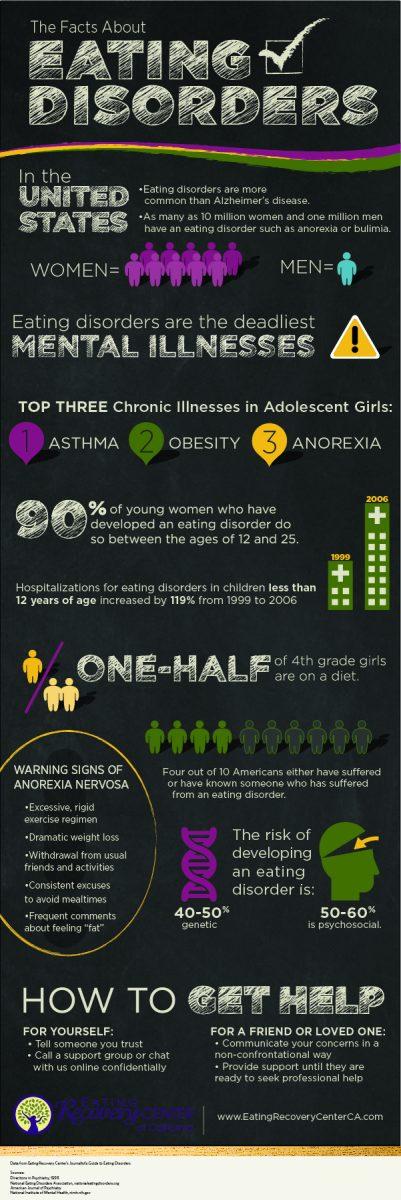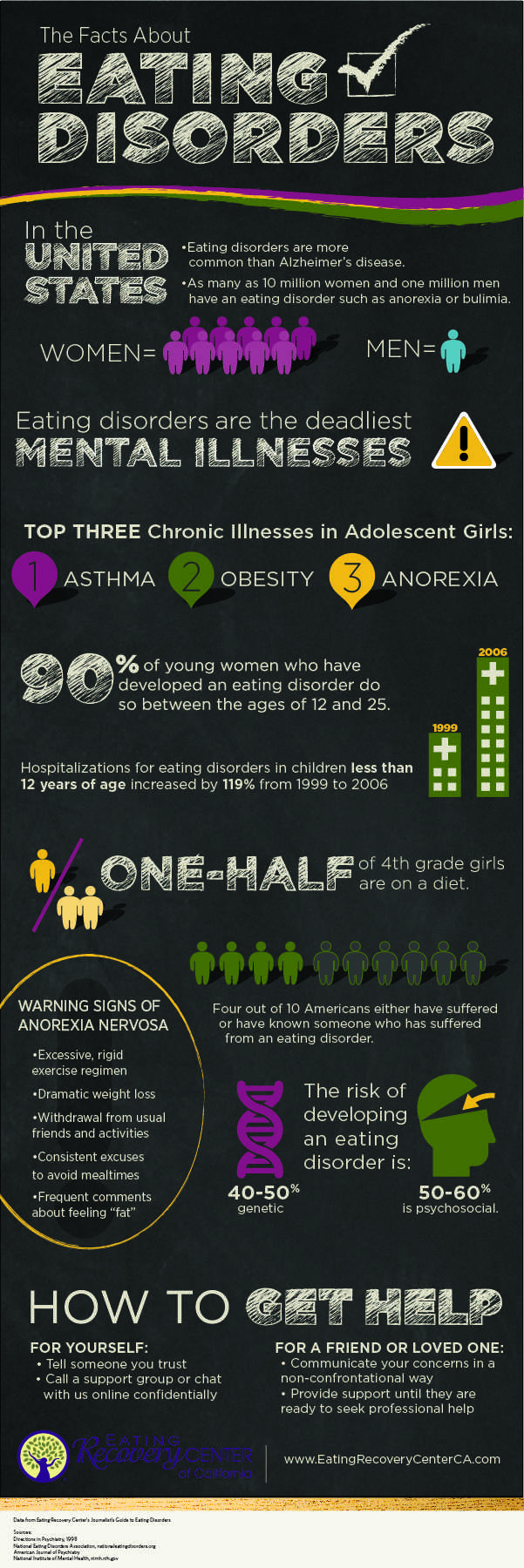Americans under the age of 35 spend approximately 3.8 hours on social media everyday with females in particular spending about 3.6 hours. A recent study done by Florida State University has found college-age women, who spend large amounts of time on social media websites, are more likely to develop an eating disorder and often suffer from body image and appearance anxiety.
Jennifer Lombardi, the executive director of the Eating Recovery Center of California, said they noticed similar trends with patients at their facility. Many young women tend to not only be fixated on appearance and body image, but on feedback from others on their appearance.
“Social media’s emphasis on personal appearance, as well as photo sharing inducing commentary from others, can play into the insecurities that those vulnerable to developing eating disorders tend to have,” said Lombardi.
Lombardi pointed out how many of their patients and those prone to developing eating disorders often have a yearning for feedback about their physical appearance, thus Facebook and other social media sites centered on this behavior can be potentially harmful for these individuals.
The study was conducted in two parts. In the first part of the study, about 960 college females were given course credit to participate in an eating disorder test. The women were given various statements and told to either “agree” or “disagree.” The test also asked them to provide the amount of time they spent on Facebook.
The results concluded there was a small but significant correlation between the amount of time spent on Facebook and the amount of women with eating disorders.
In the second portion of the study, 84 of the original 960 women were chosen based upon their level of Facebook use. The women were identified as individuals that used Facebook on a regular basis. One half of the participants were asked to log into their Facebook account and surf the website as normal.
The other half of the study was asked to visit Wikipedia and research the ocelot, which is a rainforest cat. Afterward both groups were given a questionnaire about their eating and Facebook habits.
The result of this portion of the study showed college women who reported a higher risk of developing an eating disorder found the contents of their Facebook much more important than the women who had a lower risk.
They considered receiving “likes” or comments on their photographs important, more often un-tag themselves from photos they deemed unattractive and were even more likely to compare their photos with those of their female friends.
Michele Schulman, senior, told the STAR she spends many hours a day on a variety of social media sites depending on what she has planned for that day. She found the results of the study surprising.
“Personally, I can see how Facebook could potentially lead to eating or anxiety disorders – however there are other factors too,” said Schulman. “The root of social media is about being able to connect and see what others are up to without being near or with them.”
Schulman added that if someone is already socially anxious or has low self-esteem, seeing others succeed and being happy could lead to even more negative feelings about themselves, thus increasing the rates of these disorders.
Nadia Reinecke, freshman, said she spends around two hours a day on social media sites, but most of her time is spent on Pinterest, Facebook and Instagram.
A resource for those struggling in northern California is the Eating Recovery Center. The treatment center in Sacramento is a center that provides medically supervised treatment for adolescents and adults struggling with anorexia, bulimia and binge eating disorders.
The center provides three levels of service. The highest level of service, day treatment, provides nine to 12 hours of treatment five times a week. The treatment includes medical and nutritional therapy. There is also an intensive outpatient treatment that provides three hours of service three days a week.
Also, there is outpatient treatment. This treatment includes individual, nutrition and group therapy. There is also housing available for those coming from out of the Sacramento area.
“We were motivated to create a program that not only provides research-based, effective treatment from a medical, nutritional and psychological standpoint, but most importantly has the needs of the patient always in mind,” said Lombardi.
If you or someone you know is suffering from an eating disorder, Counseling and Psychological Services is a resource on campus that offers confidential counseling to Sonoma State students. To schedule an appointment or speak with a representative from CAPS, call (707) 664-2153, or for more information on their services visit www.sonoma.edu/counselingctr.





![[Both photos courtesy of sonoma.edu]
Ming-Ting Mike Lee stepped in as the new SSU president following Sakakis resignation in July 2022](https://sonomastatestar.com/wp-content/uploads/2024/04/CC4520AB-22A7-41B2-9F6F-2A2D5F76A28C-1200x1200.jpeg)



























